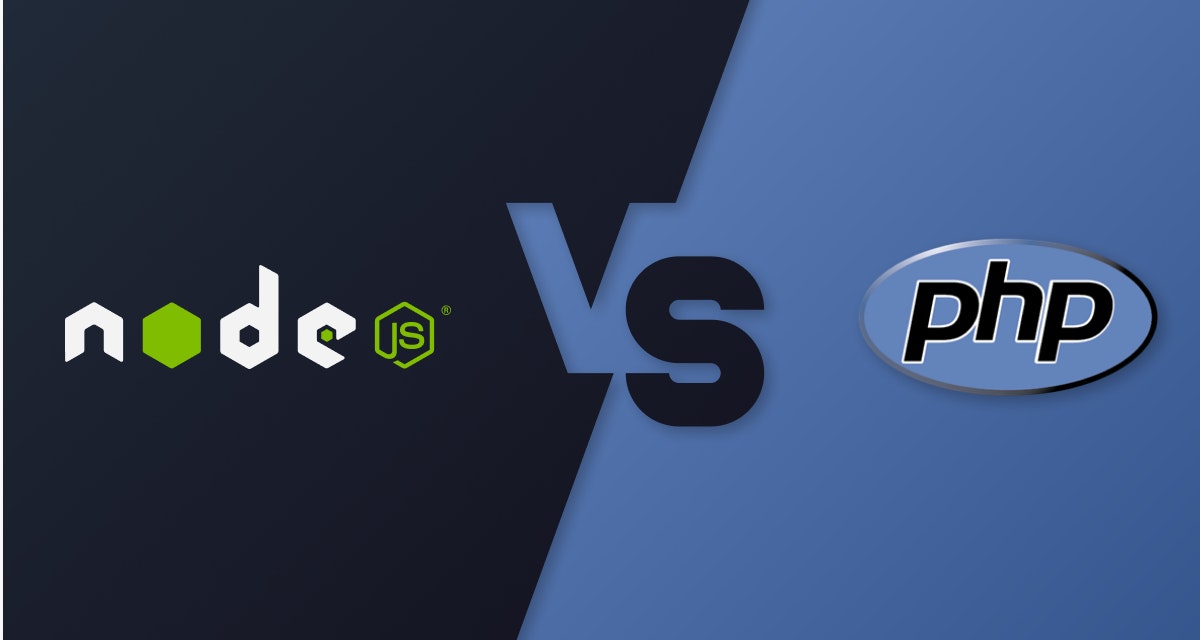Developing and maintaining a website is a complicated process. The end result needs to be dynamic, blazing-fast, and robust. It must stand the test of time.
In this digital age, ensuring high performance is at the forefront of efficient web development and the key to creating an engaging user experience.
But to build swift, visually appealing websites minus the restraints that plagued developers in the past requires you to wisely choose a hassle-free web development method that delivers impressive results.
Table of Contents
Solution: Build a static website
Static websites, for instance, are fixed and display the same content for every visitor. They comprise a series of HTML files, each one representing a physical web page. That means every web page is a separate HTML file.
There are certain benefits of having a static website, such as:
- Faster loading times
- Easier caching
- Robust and safe environments
What is a static page generator?
Although traditionally speaking, static websites were maintained manually, which was obviously painstaking. Over time, a system has been developed which lets the developers use certain code sections easily and repeatedly. It is called a static site generator.
This tool generates an entire static HTML site based on a defined set of templates and unpolished data. A static site generator automates coding individual HTML pages and ensures they are ready for users to access ahead of time.
Here are a few advantages of using a static site generator:
- Developers can create any template they want on any static site generator. A CMS does not restrict them to do so.
- Fast websites are possible! Since it builds the HTML pages in advance, they load swiftly in a browser.
- Static sites are lightweight and do not require a heavy codebase to function on the server-side.
Top 20 static site generators
If you are convinced you want to create a static website for your business, you are in luck. There is no shortage of options in the market when it comes to static site generators. But sifting through all of them is time-consuming and head-ache-inducing.
That is why we have listed the best 20 options for you in the next section. Have a look:
1.Next.js
Next.js is a static generator built on React. It can be used to create Progressive Web Apps, server-rendered apps, and static websites.
Next.js lets you define server-less functions as API endpoints and gives developers control over how they build and deploy their applications. Moreover, it helps simplify the web development process with a smooth and clutter-free experience.
Features:
- You have complete freedom over the front-end layer of the site with Next.js. Enjoy its fast, live-editing experience.
- Sites developed using this static site generator are highly responsive and adaptable.
- It allows developers to update existing web pages by re-rendering in the background even when there is traffic on the site.
- Your site is safe without any direct link to any high-profile database, dependencies, or sensitive information.
Cons:
- There is a steep learning curve for those developers who do not have a strong knowledge of JavaScript and React.
- It is limited to using only its file-based router. For instance, you cannot use dynamic routes. This can make the development process a bit restrictive.
Community and platform support:
Next.js has multiple community forums online that actively contribute to the advancement of this static site generator.
GitHub rating: 68k
2. Hugo
Hugo is a popular static site generator built using the Go programming language. It comes with an ultra-fast build process and hence, makes the creation of static websites simple. As a result, Hugo is often known as the fastest static site generator.
Features:
- It has a fantastic theme library comprising 100+ themes that can be used to create a website.
- It is simple to use, has no dependencies other than the core library, and requires little configuration.
- It has exceptionally swift build times and supports multi-language sites.
- You can render changes on the go with the LiveReload feature during development.
Cons:
- Hugo does not have an intuitive WordPress editor, making the web build process a bit tedious.
- It uses the Go programming language, which might not be everyone's cup of tea. Finding developers experienced in Go can be a challenge.
Community and platform support:
It has an active community on the Discourse platform to share your concerns and contributions related to Hugo.
GitHub rating: 52.1K
3. Gatsby
Gatsby is a static site generator based on React and uses GraphQL to glean data from various sources. Since it is compatible with many CMS platforms, it can help you get any static site or app up and running swiftly and efficiently.
Features:
- Access its vast plugin ecosystem for creating PWAs. Power up your web apps however you like with Gatsby.
- Automate image optimizing, lazy-loading, inlining critical styles, and pre-fetching resources to ensure your site is fully responsive and optimally-charged.
- It enables effective code splitting to serve only the codebase that is necessary for each web page. That is what makes the sites lightweight.
- Scalability on Gatsby sites is not an issue. It applies best practices like progressive page enhancement and accessible routing to deliver the best end-product.
Cons:
- There is a need to constantly update content from the backend as the changes would not reflect on the site in real-time.
- Due to the high volume of client-side web apps and corporate size e-shops, Gatsby takes longer to build and run such sites.
Community and platform support:
Gatsby is a growing community. In case you get stuck, there is a chance someone has already solved the problem or will help you with it.
GitHub rating: 50.4K
Guide to lead the market with Jamstack Development
Take Me To The Guide4. Nuxt.js
Nuxt.js is an open-source Vue.js framework used for building simple and powerful static websites. Since it is based on a modular web architecture, you do not have to reinvent the wheel to avail of the PWA benefits. Fine-tune your website using the bundle analyzer provided by Nuxt.js.
Features:
- It lays the foundation to build and launch universal web apps and sites by providing more than 50 modules.
- Using a unique Webpack configuration, you can generate a static version of your website.
- js has a starter template that is structurally organized, providing you all the support you require to start with your project.
- Since most of what Nuxt.js does happens during website development, you can access many of its different features by only adding a few kilobytes to your JavaScript files.
Cons:
- If you want to use any custom libraries on your Nuxt.js site, you might want to check their compatibility with the static site generator.
- It does not provide all the standard plugins that you need to work on your project, which only increases the workload of developers.
Community and platform support:
Nuxt.js has a small community with limited resources. Its product documentation has also not been updated in a long time.
GitHub rating: 34K
5. Jekyll
Launched in 2008, Jekyll is a popular static site generator, which is simple to use and has a low barrier to entry. Jekyll creates static websites and blog posts from plain text. You can typically work on the content in Markdown, a lightweight markup language for text formatting.
Features:
- Jekyll websites do not require regular updates. Plus, you do not need to set up and maintain CMS platforms and databases like the rest of the static site generators.
- It is self-sustaining and does not require you to depend on any particular format or extra tools. It gives you great freedom for programming.
- You can choose between self-hosted servers or free GitHub servers — whatever you prefer — to build your website.
- It has its integrated development server.
Cons:
- Jekyll lacks a Graphical User Interface (GUI) by default.
- It only has a few themes and plugins for developers to use.
Community and platform support:</h5>
Jekyll has a small community with limited support available on the website and GitHub.
GitHub rating: 42K
6. Hexo
Hexo is a clean and straightforward static site generator powered by Node.js. It is most commonly used for general blog site building purposes and supports using templates from different engines, making the development process a breeze for JS developers.
Features:
- Hexo only needs a single command to deploy your blog site to Heroku, GitHub Pages, or any similar platform.
- It is open-source and enables you to launch blog sites that are incredibly fast, and only takes seconds to build.
- Hexo supports all the features of GitHub Flavored Markdown and Octopress plugins.
- It has a great plugin system, through which you can install a plethora of plugins for programming languages CoffeeScript and Jade.
Cons:
- As it is based on Node.js, Hexo works at a relatively fast speed, but it is slow compared to Hugo.
- Given that most of the community members of Hexo are non-English speakers, fetching help can be an issue.
Community and platform support:
Hexo has a large community, but one can access the limited tutorials online to learn the functions of the static site generator.
GitHub rating: 32.8K
7. Docusaurus
Docusaurus is an optimized site generator built using React. It is designed to save you time and enables the quick creation, deployment, and maintenance of open-source project sites.
Plus, it allows users to submit simple blog posts and docs with Markdown, which Docusaurus publishes in static HTML files.
Features:
- Docusaurus helps in keeping all the documentation in sync whenever a new version of the project is released.
- One can personalize or extend the project's layout by reusing the same header and footer. Extensibility is not an issue.
- Localization functionalities are pre-configured on Docusaurus. By using the Crowdin plugin, you can translate your website content into 70+ languages.
- Docusaurus takes pride in supporting Algolia's documentation search.
Cons:
- Despite the positives, it has some customization issues.
- The performance of a Docusaurus site slows down while working on the content from the backend.
Community and platform support:
Docusaurus has a thriving community on Reddit, Stack Overflow, and GitHub. It also offers access to detailed documentation on the website.
GitHub rating: 23.7K
8. VuePress
As the name suggests, VuePress is a static site generator powered by Vue. It emphasizes writing code and keeping the site setup-hassle to the minimum with a markdown-centered project structure. In addition, Vuepress supports the documentation needs of Vue's sub-projects.
For every page, VuePress generates pre-rendered static HTML and executes it as a Single Page Application. That is why it is favored by many developers.
Features:
- Vuepress is easy to use, offers minimalistic features, and you can embed custom elements and plugins according to your project requirement.
- Developers enjoy working with VuePress thanks to its easy-to-use workflow.
- If you want to build your static website in multiple languages, you will particularly like the multi-language support by VuePress.
- VuePress boasts of a default theme designed for quickly going through technical documentation.
Cons:
- Vuepress does not offer SEO and blogging support which might not work for those sites which are incredibly text-heavy.
- Its feedback process is a bit faulty, and so developers cannot feed back on the platform with great ease.
Community and platform support:
The community is niche and small, with limited documentation accessible from the official website.
GitHub rating: 18.9K
9. React Static
As the name suggests, React Static is a progressive static site generator for React. There is no syntax to get used to, no schema to learn. React developers can get started with the development process fairly easily as long as they understand the language. That is what makes working on React Static highly user-friendly.
Features:
- React Static supports the entire React ecosystem — from CSS-in-JS libraries to custom Query layers like Redux and GraphQL.
- You can add your data however you like and from any source to the website. React Static is data and query agnostic.
- It delivers high web performance, and there is no need for a web page to load. As a result, it is super fast — regardless of the number of pages a website has!
- It comes with full-blown SEO management functionalities.
Cons:
- React Static is React-specific and is not compatible with any other ecosystem.
- If you are looking to build a mobile app, then it is not a good option.
Community and platform support:
Both React Static community and documentation are not that advanced but are swiftly evolving.
GitHub rating: 9.6K
10. Eleventy
Eleventy is a comparatively new static site generator in the market. If you are looking to convert featured content into static HTML files, opt for this framework. Also stylized as 11ty, it is effortless to use and quite progressive. It is written in JavaScript and uses flexible templating language such as Nunjunks, JS, and Markdown.
Features:
- Website build delays happen when it comes to larger and more dynamic frameworks. Not with 11ty. It takes less than 30 minutes to build and launch a website.
- Developers can rejoice because it offers a lot of flexibility when choosing templates as they are not limited to a specific language.
- You can decode as much content as you like from the backend and access all data files and sources with great ease.
- It uses BrowserSync to serve the website locally and with hot-reload capabilities.
Cons:
- Due to its limited resources, Eleventy does not offer any tooling support.
- You do not have SCSS/Sass preprocessing functionality out-of-the-box.
Community and platform support:
The Eleventy community is small and bootstrapped, so the level of support and guidance offered is also limited.
GitHub rating: 9.4K
11. Metalsmith
Metalsmith is an easy-to-use static site generator. It has different kinds of user-defined plugins which you can use to create anything. You can build web apps, documentation, or blogs using Metalsmith. It is also ideal for generating eBooks, documents, and PDFs.
Features:
- Metalsmith is easy to deploy and comes with a highly user-friendly interface.
- You can create any website on Metalsmith — minus the unnecessary and complex infrastructure.
- Metalsmith is open-source, and all its plugins are reusable. Talk about sustainability.
- It can be used as more than a static site generator, like a documentation generator or a standalone build tool.
Cons:
- Metalsmith relies on plugins for its functionality. On top of that, you must know NPM to install the plugins.
- It is pretty straightforward and does not offer a plethora of features to play with.=
Community and platform support:
It has a reasonably small community compared to other popular static site generators like Docusaurus and Hugo. Finding learning resources from other contributors can be an issue. However, a Slack group has recently started to curb the problem.
GitHub rating: 7.6K
12. Pelican
A Python-powered static site generator, Pelican, builds static sites with a lot of potential for scalability in any direction you want to move with a little extra programming.
It can be used to develop a complete site, one that is not limited to blogging only. It uses Jinja2 as its templating language. Pelican is a good starting point if you have some experience as a Python developer.
Features:
- Pelican-based static websites are highly secure, and you can directly write content with an editor of your choice in Markdown and reStructuredText.
- It provides a simple CLI tool for site regeneration, making the developers' job a breeze.
- Pelican supports importing site data from WordPress, so an active WordPress site to static site generation is easy.
- Pelican sites are easy to host anywhere due to the utterly static output.
Cons:
- It requires Python to be installed on the desktop when adding and/or editing content.
- There is a steep learning curve for developers who are not familiar with Python.
Community and platform support:
It has an active community that fixes bugs, adds features, and creates new themes regularly. Pelican documentation is comprehensive and helpful.
GitHub rating: 10.4K
13. Sapper
Sapper is a Svelte framework that is used for creating high-performance web applications. From building server-rendered pages to defining API endpoints, Sapper is equipped to perform many versatile functions in the web development process.
Features:
- It offers support to developers to export pages as static sites.
- Leverage its flexible filesystem-based routing process that helps make the development process a wonderful experience for the developers.
- You get complete SEO and initial load support and progressive enhancement capability with Sapper.
- The end result also comes with the slick navigation of a SPA.
Cons:
- This is not for you if you only know how to develop sites and web apps using React.
- Limited support on Sapper may make it difficult for amateur developers to do their job.
Community and platform support:
Since it is a new framework in the market, its documentation is still in the initial stages, and it has a small but fast-growing community on Discourse.
GitHub rating: 7.1K
14. Brunch
Brunch is a programming language-agnostic assembler of HTML5 apps. It collates templates, scripts, and style sheets in a single JavaScript module, giving you a leaner package to work with. For example, with Brunch, you can easily create a website skeleton for a swift launch.
Features:
- It has rich and flexible plugins that enable you to control every step of the development process — from loading and compiling JavaScript files to asset manifest building.
- Access 80K modules apt for both client-side and server-side development.
- Divide your codebase into multiple chunks to reduce the initial loading time.
- Developers can debug the website easily because Brunch allows them to find the problem within the origin files of the output file.
Cons:
- The configuration file may be hard to understand due to the complex syntax and Webpack.
- It cannot load files discovered during downtime.
Community and platform support:
Its contributors are active on GitHub and Stack Overflow. It offers guidance on designing plugins on the website.
GitHub rating: 6.8K
15. Middleman
If you are looking to leverage all shortcuts and web development tools helpful in building a website, then Middleman is apt for you. It is a command-line tool perfect for building static websites used by major brands like DigitalOcean, Dockbit, and Bivee.
Features:
- Customizing a Middleman site is relatively easy as its documentation shares what each directory is doing in great detail and how the site can be personalized.
- You can also take the help of multiple asset solutions, including Sprockets, for better digital asset management.
- It comprises CoffeeScript for safer and less verbose JavaScript. This makes the development process less complicated.
- You can export the site in a production-ready format, making the frontend robust again.
Cons:
- It does not offer much flexibility when it comes to expanding the static site. This is a problem from a long-time perspective.
- To maximize the potential of Middleman, knowing HTML5 is a prerequisite.
Community and platform support:
A group of the core team and contributors actively contribute to the evolution of Middleman on GitHub.
GitHub rating: 6.8K
All you need to know is which front-end framework suits you the best
Tour To The Guide16. Harp
Harp is a static web service that allows you to reuse common elements and partials to maintain consistency across the website design and layouts. It preprocesses the codebase automatically, giving you time to focus on writing the actual code. It builds JavaScript, HTML, and CSS sites.
Features:
- It helps keep your codebase neat and organized and smartly compiles the assets as and when the web browser needs them.
- You can move to dynamic content from static assets bypassing metadata into your pages and views.
- You can compile your code to JavaScript, CSS, and HTML to build a website or a mobile app and host it anywhere.
- Website changes made on the backend reflect on the frontend with a simple ‘save-and-refresh’ button.
Cons:
- Documentation can be challenging for amateur developers to navigate through and glean actionable insights.
- Its development can be relatively inefficient in patches.
Community and platform support:
They have a small community on IRC and GitHub. Detailed documentation can be found on the website.
GitHub rating: 4.9K
17. Roots
Roots is a static site generator built using Node.js. It is used for creating static HTML, JavaScript, and CSS files. If you are a freelancer or agency looking to develop a high variable website, Roots is an ideal option for you to develop your project.
Features:
- It comes with a large number of plugins and templates for Rails and Express.js.
- Roots has an extensible asset pipeline and helps build robust frontends.
- It offers support for programming languages like Stylus, CoffeeScript, and Jade.
- It can handle the most tedious parts in web development, from pulling in your data to rendering parts of it into your compile views.
Cons:
- If you want an SEO-friendly website, then look for other options. Roots does not support SEO management, which does not work in the favor of freelancers.
- Since it is a sub-product of Netlify, it may or may not be your cup of tea.
Community and platform support:
It has a tiny community with limited learning resources.
GitHub rating: 11K
18. Gridsome
Gridsome offers the fastest and the most optimal way to build static websites. It is a JAMstack framework powered by Vue.js. You can use web tech tools such as GraphQL and Webpack to create a website using this static site generator.
Features:
- You can create websites quickly with Gridsome, including swift asset optimization, code splitting, and link prefetching.
- Gridsome sites load as static HTML, which means search engines can crawl content and rank pages higher.
- It has pre-rendered HTML pages through which you can develop content without using JavaScript.
- You can deploy your entire site to a CDN and not worry about ensuring huge server expenses for the sake of safety.
Cons:
- You do not get a lot of flexibility to customize your project on Gridsome.
- To use this static site generator, you should have a fair amount of knowledge of GraphQL.
Community and platform support:
It has a massive community of developers and editors, most active on Discord, GitHub, and Twitter.
GitHub rating: 7.6K
19. Scully
Scully is the first static site generator built on Angular. It was released in 2019 and positively supports Angular v9 and v10 with Node.js 12 or higher. With just a single command, Scully can be integrated with any existing Angular project. It also makes it possible to use Markdown files quickly and pre-render your web apps.
Features:
- You can easily create blogs and portfolios on Scully.
- Thanks to this static site generator, you can avoid lengthy load time to load JavaScript files.
- It also reduces the average application size by 10-15 times.
- You can make your custom functionalities and plugins inside Scully.
Cons:
- It renders the web pages. However, it needs a server to do that, making the website slower during high load.
- Developers working on Scully might find it challenging to fetch help in case they get stuck during development.
Community and platform support:
Scully does not have an immense community support like many other static site generators.
GitHub rating: 2.2K
20. Sculpin
Sculpin is a static site generator powered by PHP. It converts Twig templates, Markdown files, and standard HTML into static web pages. It uses Symfony components and comes integrated with the Composer.
Features:
- Sculpin uses Twig templates and markdown to create articles which makes it easy to copy-paste HTML documents.
- Enjoy extra flexibility in your project using Composer so that your website can be more extensible and high-performing
Cons:
- If developers are not experienced in PHP development, Sculpin might not be the best option for them.
Community and platform support:
It has a great community, active on IRL and Twitter. One can access the documentation on the website.
GitHub rating: 1.4K
In conclusion
A website’s success lies in its foundation, well, the majority of it. So if you are keen to build a rock-solid website, you must choose a platform that supports your end goal.
Are you looking to build a static site generator but do not have the expertise in-house? No worries — share your requirements with us, and our expert team will come up with the most suitable business solution for you pronto.






